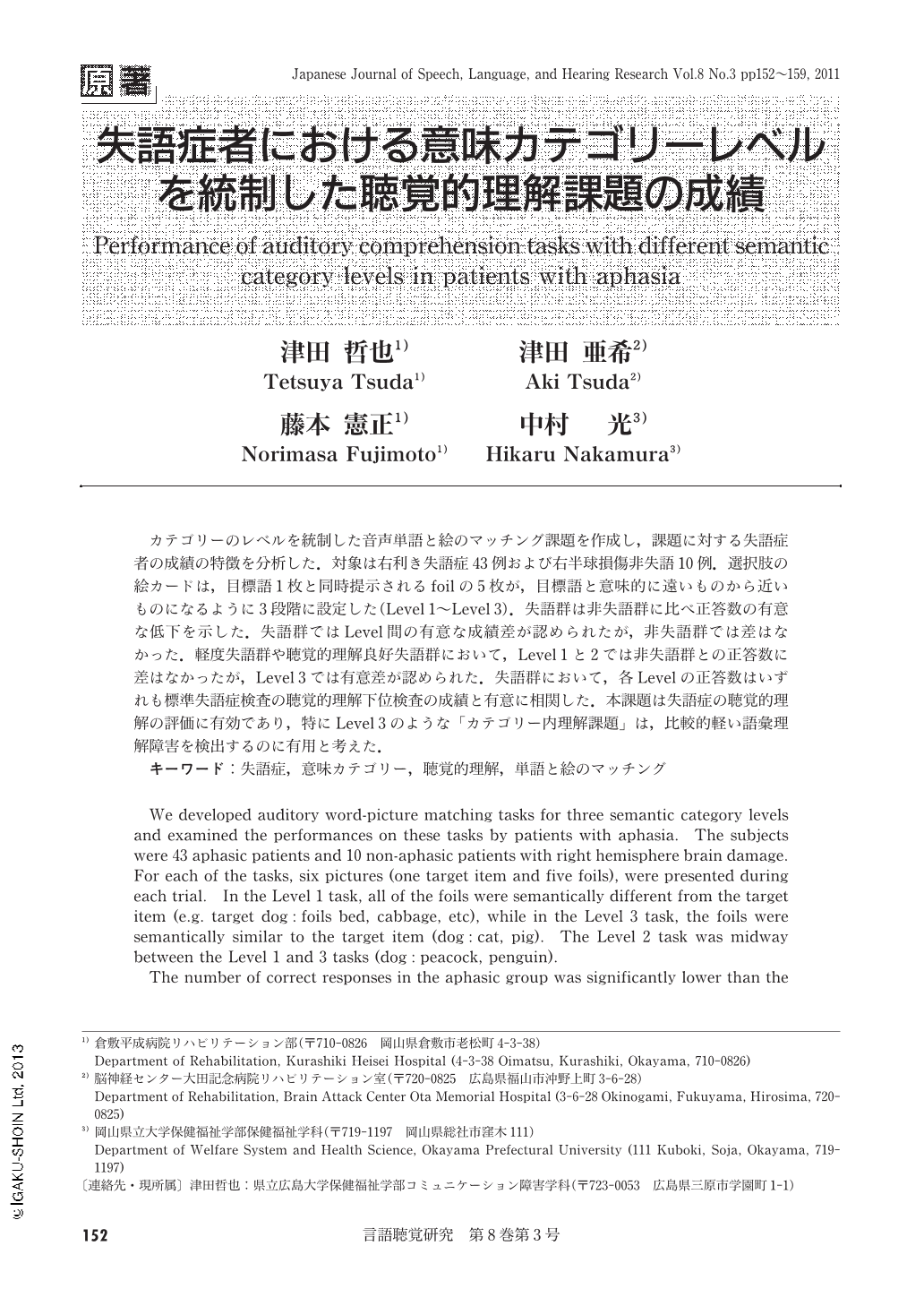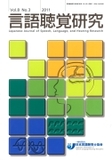Japanese
English
- 有料閲覧
- Abstract 文献概要
- 1ページ目 Look Inside
- 参考文献 Reference
- サイト内被引用 Cited by
カテゴリーのレベルを統制した音声単語と絵のマッチング課題を作成し,課題に対する失語症者の成績の特徴を分析した.対象は右利き失語症43例および右半球損傷非失語10例.選択肢の絵カードは,目標語1枚と同時提示されるfoilの5枚が,目標語と意味的に遠いものから近いものになるように3段階に設定した(Level1~Level3).失語群は非失語群に比べ正答数の有意な低下を示した.失語群ではLevel間の有意な成績差が認められたが,非失語群では差はなかった.軽度失語群や聴覚的理解良好失語群において,Level1と2では非失語群との正答数に差はなかったが,Level3では有意差が認められた.失語群において,各Levelの正答数はいずれも標準失語症検査の聴覚的理解下位検査の成績と有意に相関した.本課題は失語症の聴覚的理解の評価に有効であり,特にLevel3のような「カテゴリー内理解課題」は,比較的軽い語彙理解障害を検出するのに有用と考えた.
We developed auditory word-picture matching tasks for three semantic category levels and examined the performances on these tasks by patients with aphasia. The subjects were 43 aphasic patients and 10 non-aphasic patients with right hemisphere brain damage. For each of the tasks, six pictures (one target item and five foils), were presented during each trial. In the Level 1 task, all of the foils were semantically different from the target item (e.g. target dog: foils bed, cabbage, etc), while in the Level 3 task, the foils were semantically similar to the target item (dog: cat, pig). The Level 2 task was midway between the Level 1 and 3 tasks (dog: peacock, penguin).
The number of correct responses in the aphasic group was significantly lower than the non-aphasic group. The number of correct responses was significantly different for each task level in the aphasic group but not in the non-aphasic group. In the subgroups of mild aphasia and aphasia with good auditory comprehension, the number of correct responses to the Level 3 task was significantly lower than the non-aphasic group, but not for the Level 1 or Level 2 tasks. The number of correct responses was significantly correlated with the auditory comprehension subtest scores of Standard Language Test of Aphasia. We think that our tasks are valid for measuring auditory comprehension in patients with aphasia and that the "within category" tasks like the Level 3 task may be useful for detecting mild comprehension disorders of lexical items.

Copyright © 2011, Japanese Association of Speech-Language-Hearing Therapists. All rights reserved.


